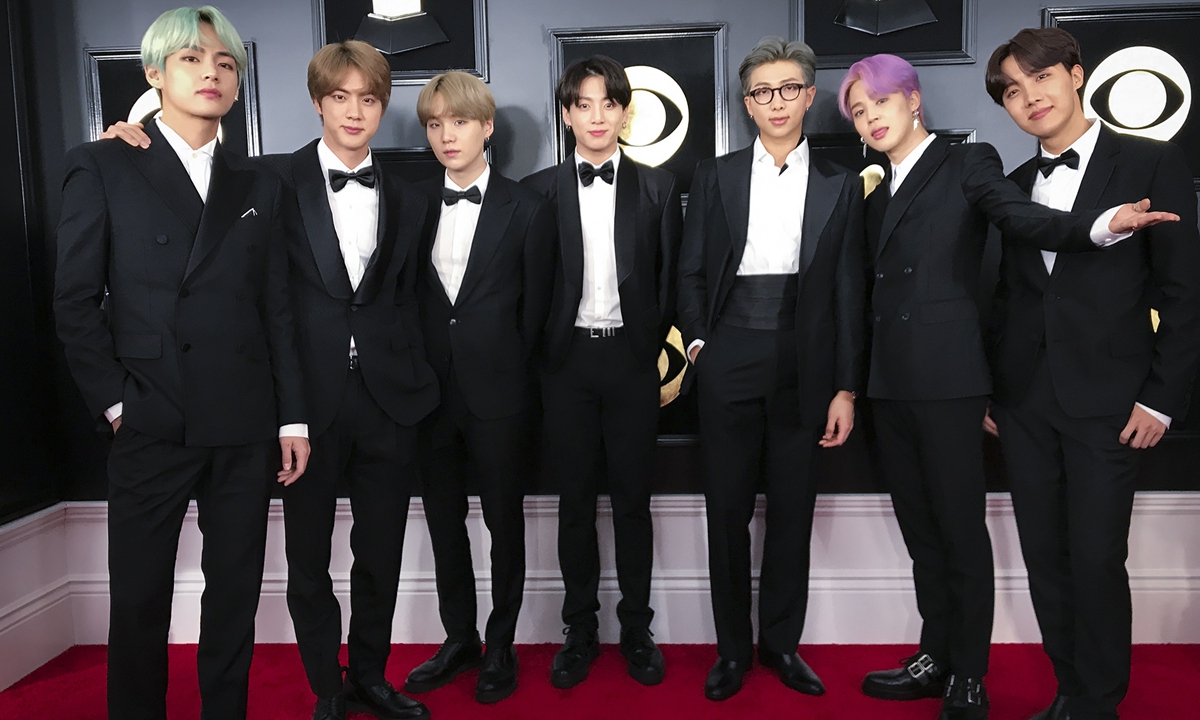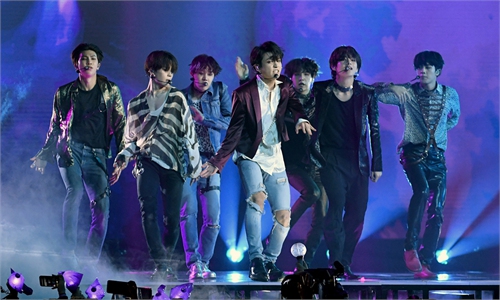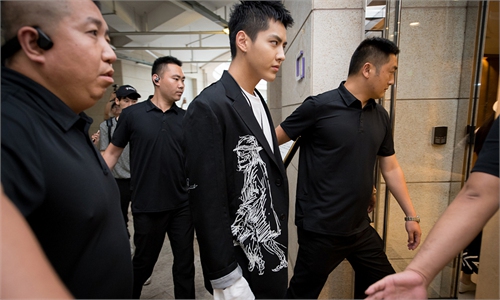Weibo suspends S.Korean star's fan club account amid crackdown on illegal fundraising in idol-chasing

BTS Photo: CMS
China's social media platform Sina Weibo announced on Sunday it has banned an account of South Korean boy band BTS' fan club from posting for 60 days, as the account was found to have engaged in illegal fundraising in chasing band member Park Ji-min amid the country's campaign to combat the "irrational behavior" of fan clubs and chaos in the domestic entertainment industry.
Many netizens expressed their support for the move and Chinese communications experts pointed out that Chinese fans of foreign celebrities should abide by the local laws and regulations of China that relate to idol-chasing behaviors.
The idol-chasing behavior of Park's fan club has attracted public attention on Weibo since Wednesday, when a fan club on Baidu Post Bar announced that a customized airplane raised by the club with Jeju Air had been put into service for three months, with the entire fuselage, cabin and plane tickets customized for the star.
Apart from the airplane, the fan club also said that it had communicated with The New York Times and The Times on running ads for the star on October 13, which is his birthday. The fan club also said that The New York Times would display a full-page color advertisement, according to Guancha News on Sunday.
The fan club has reportedly raised money starting from April to prepare for celebrations for the star's 26th birthday. After the fundraising activity was launched on Baidu Post Bar, more than 1 million yuan ($150,000) was raised in three minutes and 2.3 million yuan in one hour, according to Ji-min Bar.
A Global Times reporter found that the account on Weibo, with followers exceeding 1.1 million, was banned from posting as of press time.
Zhu Wei, a communications researcher at the China University of Political Science and Law in Beijing, told the Global Times on Sunday that Chinese fans should pursue celebrities within the framework of Chinese laws and regulations, whether their idol is a foreigner or a Chinese.
Zhu said that China is promoting more law-based control over fans in chasing idols as the Cyberspace Administration of China issued heightened measures on August 27 to crack down on the unhealthy online fandom culture and reduce frenzied idol worship by underage fans, following a campaign named "Clear and Bright" in July.
The actions of some idol agencies in South Korea seeking to benefit by using their idols and ease the anxiety of some Chinese fans' idol-chasing habits, have provoked antipathy among Chinese netizens, Zhu said.
As to how the Chinese government can regulate the behavior of fans raising money and advertising their BTS idol on some overseas media, Zhu said that as long the money is raised by Chinese fans within the country, they should abide by the laws and regulations of China.
"There is no tolerance for some foreign institutions, which seek profits while challenging the bottom line of China's regulatory policies," Zhu noted.
For minors who do not have the ability to earn money but were lured to raise money for their ''idols,'' it's high time for the government to regulate the irrational ''fan circle'' culture, Zhu said.


